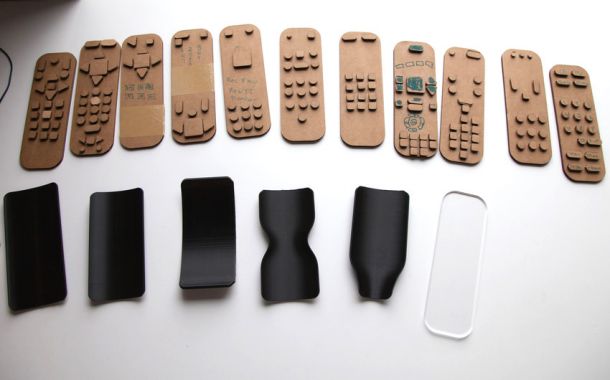Charter Communications Partners with NYU Ability Project to Make Home Entertainment More Accessible

Charter Communications, the telecommunications company and cable provider, recently partnered with the New York University Ability Project to research and discover assistive technology solutions to transform home entertainment to be more accessible and enjoyable for all individuals. Focusing on integrating accessibility into Spectrum’s entertainment interfaces, the student researchers — led by Ability Project faculty R. Luke DuBois, associate professor and co-director of Integrated Digital Media, and Claire Kearney-Volpe, project manager and doctoral research fellow — presented their findings and solutions to Charter executives on July 27.
Having previously supported student-led prototyping projects through NYC Media Lab, of which Charter and NYU are members, the company collaborated with students and faculty from The Ability Project over the 10-week, multidisciplinary project. The students focused their detailed research into the user experience of cable watching and how individuals interacted with Spectrum’s entertainment products through the iPad, Roku, the set-top box, and the remote. (The Ability Project is an interdisciplinary research space that aims to bring together assistive technology and adaptive design into research across NYU to empower and enhance the lives of all New Yorkers.)
Throughout the project, the emphasis was on human-centered design and accessibility within a customer’s entire experience with Spectrum. Students from across NYU schools, including NYU Tandon’s Integrated Digital Media program, the Interactive Telecommunications Program (ITP), and Occupational Therapy at NYU Steinhardt, brought users to the forefront of their research by working with individuals from ADAPT Community Network, the Mayor's Office for People with Disabilities, the NYPL Andrew Heiskell Braille and Talking Book Library, and the Helen Keller Services for the Blind. With many individuals using screen readers or requiring descriptive services and captioning in multiple languages, the team worked to discover ways to transform watching TV and movies or navigating the company’s website into a universally accessible experience. The students also tapped into their innovative design thinking through prototyping exercises, exploring potential interface design that tested the applicability of virtual reality, augmented reality, artificial intelligence, and machine learning technology.

As part of her research, Integrated Digital Media student Gabriella Cammarata asked individuals to design their ideal TV remote, and she also created prototypes of accessible remotes featuring distinctive shape and curvature.
At the recent presentation, the students shared their proposed product development, and a white paper detailing potential advancements to the company’s audio offerings and new technology, with James Stark, Senior Director of Design TV Apps at Charter, Mark Lasser, Senior Director of Accessibility, and Ian Ruppert, Senior Manager of Industrial Design.
“Charter is always working to improve the quality and inclusiveness of our Spectrum products. To that end, it’s very important that our outreach is not only representative of our diverse customer base, but also includes innovative thought leaders, designers, technologists, and researchers like we found with NYU’s Ability Project,” Stark said. “Over the 10-week course, faculty and students not only helped us to understand ways to continue improving the accessibility of our products across multiple platforms, but also created many great solutions that will help us get there in the future.”
Camila Ryder
Graduate School of Arts and Science
Master of Arts in English Literature, Class of 2018



